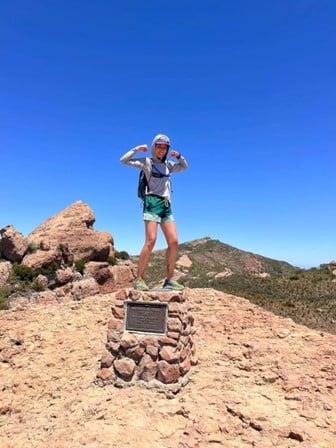
When I grow up, I’m gonna be outdoors!
By Lydia Heye, legal fellow

Every summer as a kid, I found myself coming to the same conclusion, “When I grow up, I’m going to be a full-time camp counselor!”
The highlights of my elementary school years revolved around the week-long day camp my siblings and I would go to with our church a little outside of Portland, Oregon. To this day, I can vividly recall the smell of the trees, the sound of the canoes knocking against each other on the dock, and the feel of the crisp summer morning air that hit our faces as we got off the bus that took us to camp.
It was at those camps where I first learned to canoe, hike, and appreciate the natural world around me. At the time, I didn’t fully realize how fortunate we were to have had access to the outdoors as kids of color. In hindsight, I don’t recall many campers or any counselors who were Black or people of color.
Day to day stress swept away by the Pacific Northwest
Growing up in Portland, my family and I would regularly try to go on walks in nearby green areas or take day trips to the coast. It was a privilege having access to the natural world at my fingertips. My mom opened that world up to us. She is one of those people who will go on ten-mile walks in the pouring rain because she would prefer to be moving her body than be in the house. She encouraged me, as I got older, to explore the wonders of the world around me by taking me on hikes and drives around the West Coast. She showed me the power that being outside can have on your physical, mental, and spiritual wellbeing.
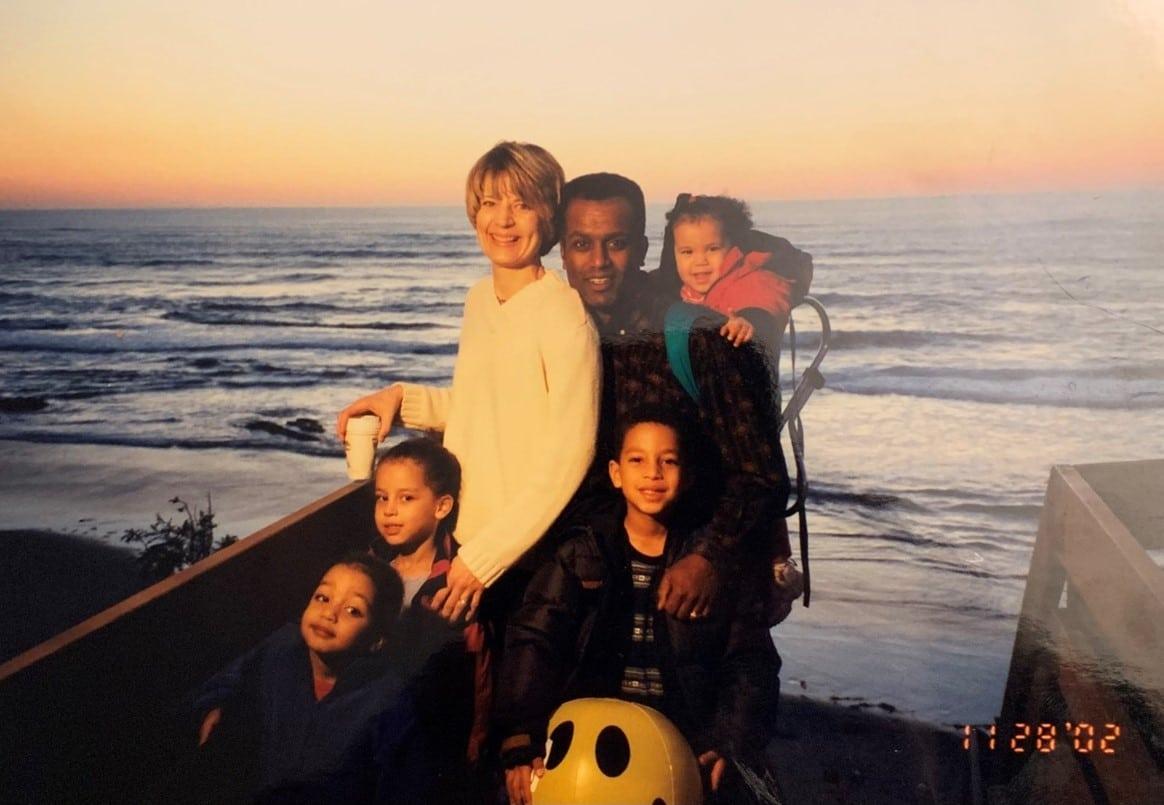
As my world got bigger and more complex with age, I started to realize that my mom was on to something. There were few stressors I faced that a thirty-minute walk or a scenic drive couldn’t help ease. It was in those moments where my problems felt small. It was hard to be overwhelmed by my stressors when I was swallowed by a sea of Douglas firs or when my inner dialogue was interrupted by the songs of the birds above. The complexity of my day-to-day was swept away by the Pacific Northwest breeze.
But what happens when the outdoors itself becomes complex? In the back of my head, I knew I didn’t look like others on the trails. And that was okay — at least I thought.
The pandemic made racism more palpable outdoors
Living in Portland, I never expected to see many other people of color out anyway. That changed in 2020.
During a time when most people found themselves outside, craving time away from the homes they were quarantined in, I felt uncomfortable. In the summer of 2020, I started to see more stories about violence against Black people in the outdoors. Whether it was a white woman calling the cops on a Black birder in Central Park or a Black runner murdered by white neighbors, it became harder for me to feel confident retreating to the place where I had found such peace and joy.
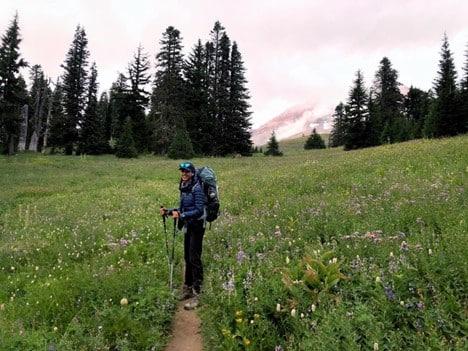
Unfortunately, I can’t say I was necessarily surprised. Racism permeates through every aspect of society and our daily lives. Why would the outdoors be any different? The inequity in access to the outdoors is multifaceted – ranging from racialized violence and intimidation, gatekeeping, wealth inequality, to racist city planning or “redlining.”
I am privileged to have grown up with people who taught me how to enjoy the outdoors and the wonders that it brings. I am privileged to have access to such magical places, both geographically and financially.
However, no amount of knowledge, access, or gear can protect against racism in the outdoors – whether it’s friends who second guess my experience level because I don’t “look the part,” questioning glances from others I encounter on the trails, or the constant fear of racialized or gender-based violence while I’m outside.
Wherever the trail goes, we belong
While this personal reckoning was discouraging, I found that it led me to intentionally seek out those folks of color who, despite it all, are unashamedly enjoying the outdoors. I found organizations such as Outdoor Afro, whose sole mission is to empower and connect Black folks to nature. I also got connected with groups such as “Black People Hike” on Facebook, where Black folks share their knowledge and experiences in the outdoors with each other. I even ran into a group called “Blaque Girls Hike Los Angeles” when I was out for a hike in LA. Seeing such a large group of Black folks from all walks of life outside and enjoying the trails brought me an indescribable joy.
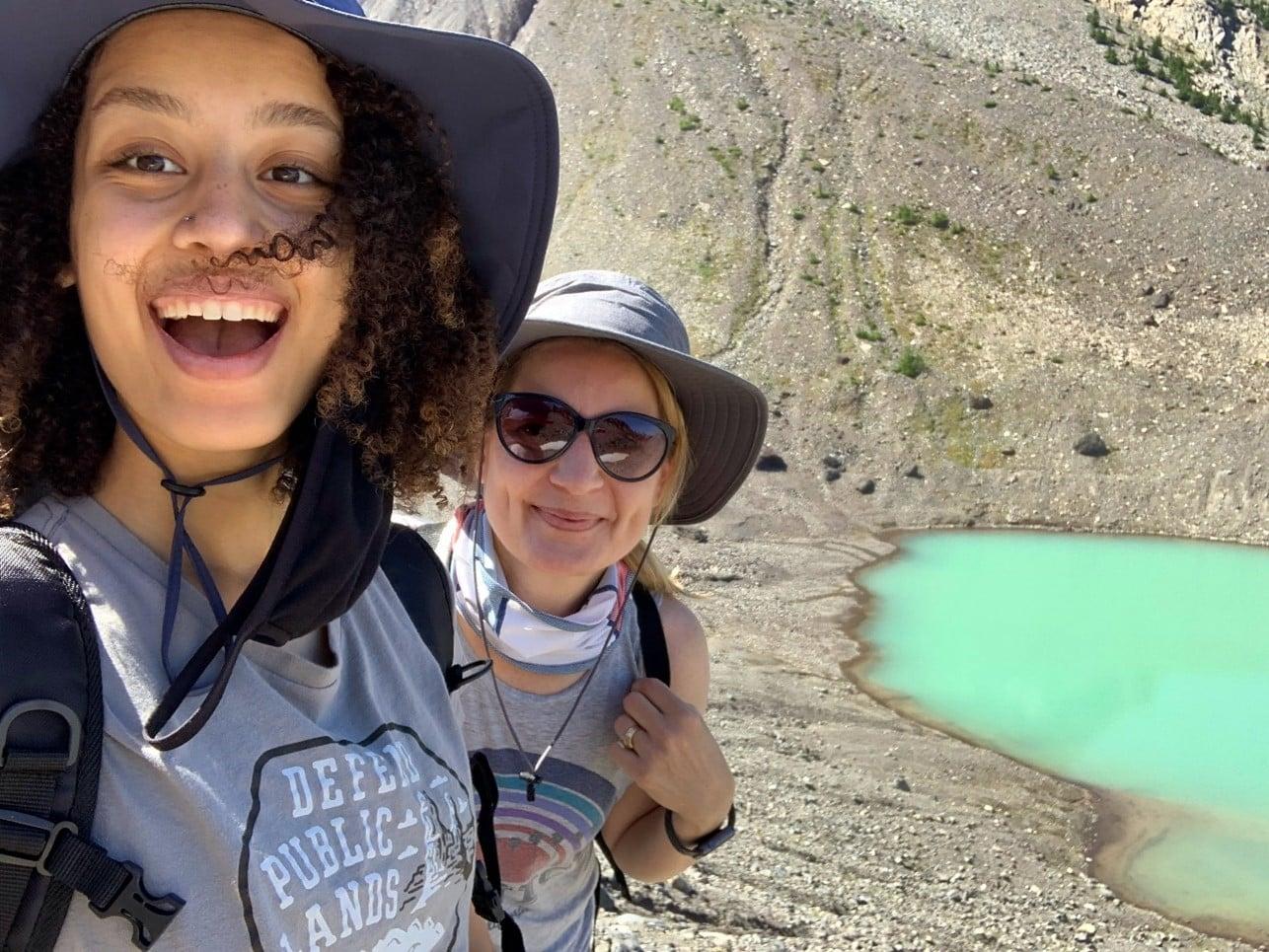
Through all of this, I have learned that not only is nature a place where we can find restoration and peace, but it is also a place where I am reminded of my own community’s resilience. Despite all forces that tell people of color that we don’t belong in the outdoors, we’re still there. We deserve to be able to enjoy the physical, mental, and spiritual benefits that nature brings, just like everyone else.
So, while I haven’t (yet) fulfilled my childhood dream of becoming a full-time camp counselor, I believe that by simply continuing to enjoy all the things the outdoors has to offer, that I am helping kids who look like me to think that they belong in the outdoors too.
Three questions about spending time with/in nature
What do you think is the ideal amount of time for you to spend in/with nature?
I think ideally, one should spend as much time as they can as long as they feel safe and confident!
What does a meaningful experience in nature look like for you?
I think that a meaningful experience in nature can look like a lot of things. If I feel like if I am more connected to the world around me, feel closer to God, or simply feel more at peace or joyful, I would say that it was a meaningful experience. A short walk through my neighborhood park or a multiday backpacking trip have both brought me those results. All of that to say, I don’t think that it is necessary to do an extravagant excursion to have a meaningful experience in nature.
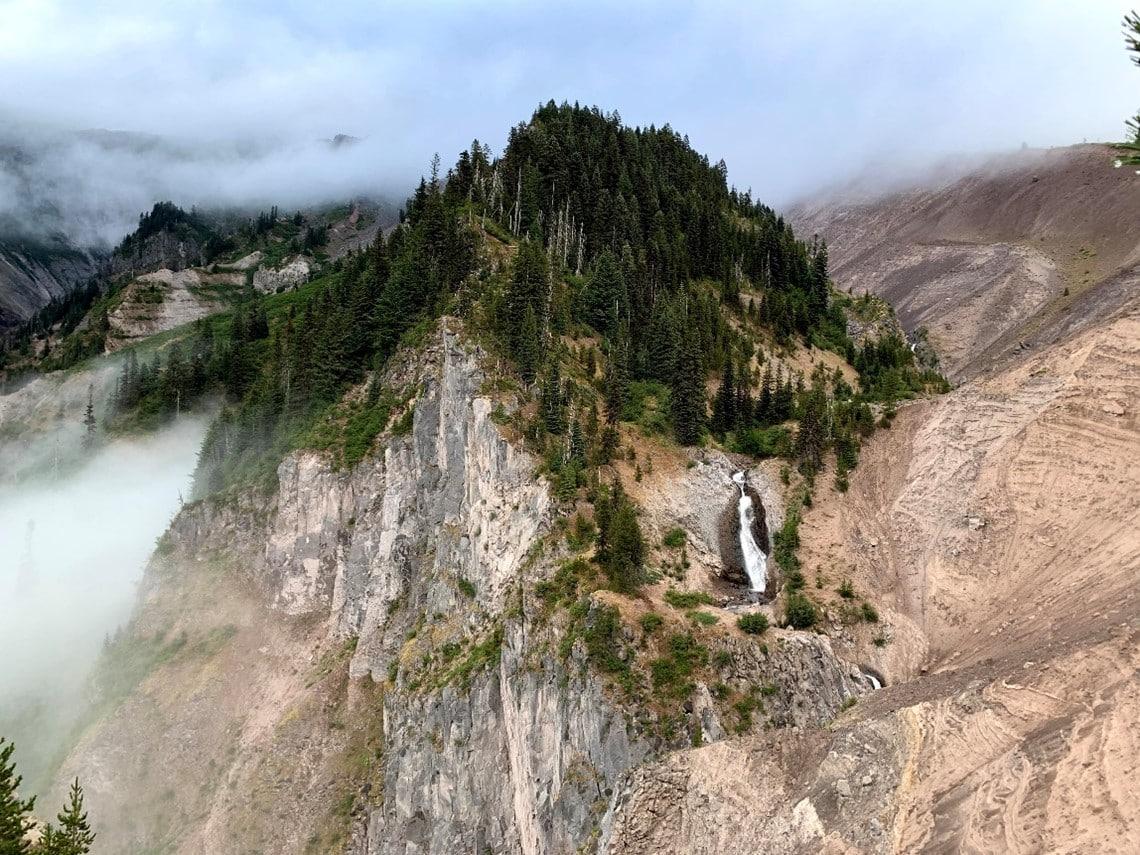
Describe one moment in nature/outdoors that left you with a sense of awe and connection?
A friend and I were on a backpacking trip circumnavigating Mt. Hood in Oregon. It was the first time doing this particular hike for both of us, so we didn’t know what to expect! On the second morning of the trip, it was slightly raining and cloudy (typical for the Pacific Northwest). The fog had covered most of the views; however, there was a slight break in the clouds which revealed a majestic waterfall on the other side of the mountain. In that moment, it felt as if we were the only ones on the mountain. Right then, I finally understood what people mean by a view “taking your breath away!” (Though it may have from the elevation or the 45-pound pack on my back…)
Lydia is a legal fellow with Trustees. Her story is the twelth in a monthly series about how nature, getting outside, and being with land and water influences human health, resilience, connection, and purpose. Look for these stories in our monthly newsletters.
Previous stories in the series:
- Suzanne’s story: From tidepools to tussocks
- Brook’s story: Finding joy on mountain ridges
- Dawnell’s story: A walk in the Arctic
- Bridget’s story: The outside life–an ode to icy slopes and jampacked campgrounds
- Lang’s story: Being in that exact spot, at that exact moment
- Brian’s story: A recipe for well being
- Joanna’s story: This seasick soul is lovesick for the sea
- Tracy’s story: My summers with dirt
- Ashley’s story: Just a country girl
- Rachel’s story: Nature teaches me I’m the protagonist in my own life
- Katie’s story: Howling pierced the morning quiet


